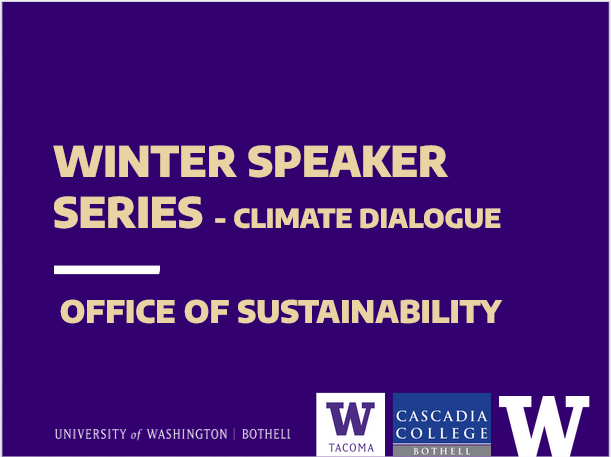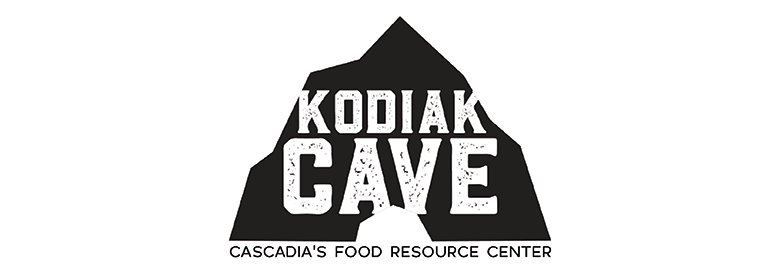co-written by Stephan Classen and Rachel Luther, UWB Sustainability Coordinator
I keep getting this question – when we host food events, when we talk about agriculture, or food systems, food access, and food waste: How is Food part of Sustainability? Isn’t that more social justice focused, or at least – why are the Sustainable Practices Offices focusing on food?
Well, it’s actually not a big jump – as food is one of the main topics that sustainable practices can impact – locally, personally, on campus, and beyond.

Personal Impact
The choices that you make as an individual might not seem like they matter very much, but in reality every choice is like a domino effect. Flicking over one domino or making one small lifestyle change might not make a huge difference, but when you stop to watch how your choices affect all of the interconnected pieces of our lives and others’ it’s like watching the dominoes cascading down the line. Food is incredibly interconnected, not just because it is a social justice issue, an equity issue, a sustainability issue, and more, but also because our food system itself is so incredibly complex.
Take the hamburger example. You may choose to stop at McDonald’s this very day to buy a $3 hamburger on your way home. This decision to buy a hamburger from McDonald’s may seem flippant, but let’s consider the ripple effect of that decision. A hamburger is made of beef which is one of the most environmentally destructive foods. That single hamburger required as much water as you would use in your shower for 2 months. The problem with beef is that a cow requires a lot of food to get up to the required weight and to do that, they are usually fed grain and corn. Corn is another extremely inefficient crop because it grows slowly and requires a lot of fertilizer and pesticides to keep up the high yields that farmers demand. So not only does it require a lot of land, and a lot of chemicals, and a lot of water to produce a hamburger, it also presents a justice issue. What could you choose instead?
And yet, as a social issue, many people live in food deserts – a location in a city or town where their only options within a 5 mile radius is a McDonald’s hamburger. How do we create more food options for people who are limited in choices? We can all agree that more fruit and vegetables are needed for healthy diets over hamburgers, but the system is not that simple for many Americans, much less the rest of the world. Healthy, affordable food options aren’t available for more people that we realize.
A vegetarian diet uses much less land and resources than a traditional meat-heavy American diet, a vegan diet uses even less. But asking everyone to go vegan or even vegetarian is a lot. Just reducing your meat consumption can make a huge difference! Think about the impacts of one hamburger, if you choose to eat the equivalent of one less hamburger per week, that actually has a large impact. Individual choices have an even larger impact if everyone pitches in just a little bit. If everyone in the world ate closer to three portions of meat about the size of a deck of cards per week, meat consumption would be on a much more sustainable trajectory. So never say that your choices don’t matter!
Campus Food
Food availability might be a challenge on campus, but it’s an important issue for more than just where to find lunch or coffee! There is growing information about food insecure students, and our Kodiak Cave and Husky Pantry are there to serve and support students – including with goals about nutrition and food access we mentioned above!
The campus farm is also open to students and staff who are interested in learning how to grow their own food. Excess food harvested from the farm gets donated to the Kodiak Cave and Husky Pantry, but the farm is actually open to anyone on campus who is brave enough to pick from it. If you are interested in gardening but you don’t know how to get started we are hosting a series of lunches at the farm where you can learn introductory gardening skills during spring quarter.
Local Food
Food transportation is a major equity and environmental issue – so it’s everything sustainability covers. Climate impacts of food growing through agriculture, environmental damage from pesticides, carbon emissions from transportation, food waste through loss, rot, and things thrown away, are all various environmental concerns about food.
Health issues from eating those pesticides, access to nutritious food, and chemical concerns within foods are all equity concerns.
Where does local food fit in? It can solve all the above problems – if grown right!
Many local farms are organic or at least pesticide free. The distance from farm to your table makes a huge impact for both food waste and carbon pollution. A local farm is also community based – so it helps your neighbors and your own food access in cases of catastrophe! Buy local where you can, and support regenerative farming!
We are lucky to live so close to so many amazing farms, Seattle has lots of year-around farmers markets and nearby cities like Woodinville and Carnation are home to farms and farm stands like Oxbow, Carnation, and 21 Acres.
Plus, as people grow their own food in gardens, you rely less on the grocery store – look at egg prices right now, with a supply shortage and Avian Flu killing chickens, egg prices are skyrocketing!
People connect over food
Food is a social thing too, from cultural elements, sharing, and connecting with others over a meal. Joy and positivity are always a part of sustainability! We have to find ways to adapt, build community, and support others in society if we want to build a better world! Food has built and sustains many cultures around the world because it can be a social act of showing someone that you care, learning more about them, and spending quality time together. Many traditional foodways are being lost to the commercialization of food, but learning how to cook for yourself is an essential life skill. PCC Markets offers fun cooking classes and if you are interested in learning more, Eating to Extinction by Dan Saladino is a fascinating story about the traditional foods that are being lost to globalization.

Resources
Want to learn more about food, agriculture, climate change, and beyond? Tune in for the Ag/food Climate Speaker Series, part of our campus Climate Dialogs!
Check out the campus Kodiak Cave Blog!

Pingback: Sustainability is No Secret: Harmoniously Herbaceous | Integrate It!